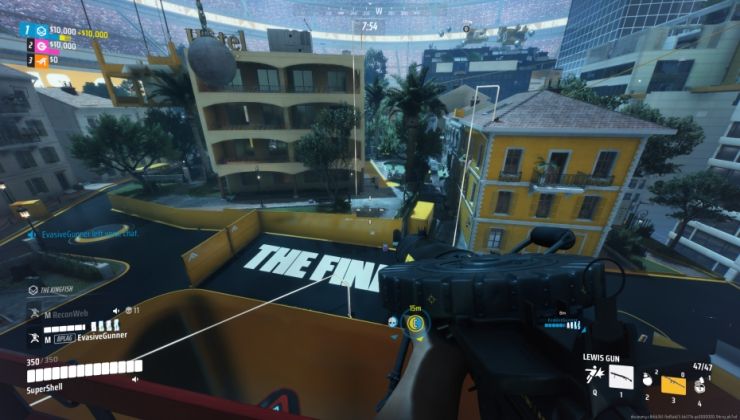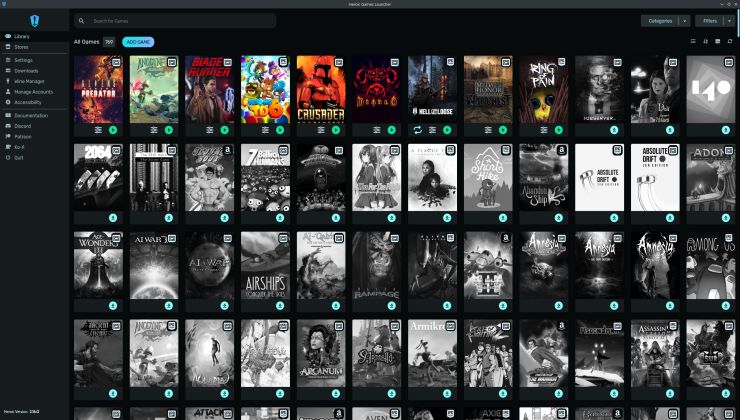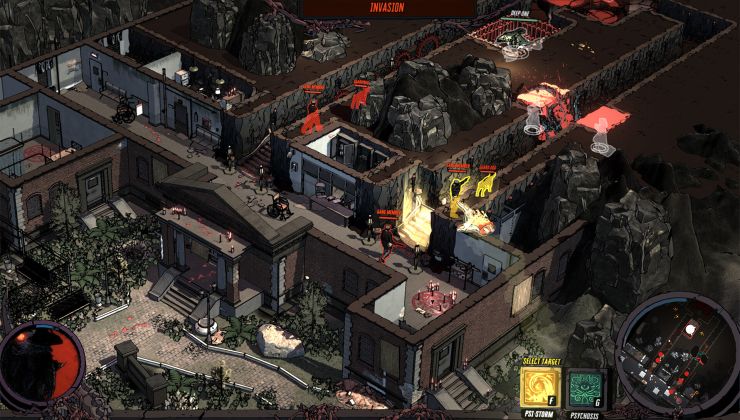There comes a time when everyone has to sit and think about what they use on their PC, especially if you're on Linux. For me, Arch Linux (via EndeavourOS) just wasn't working out any more and so I've moved to Fedora.
While I was reasonably happy with Arch Linux, it's just not stable enough for me personally. It's a very subjective thing of course, and highly dependent on what hardware you use — along with how often you update. For me, it just messed things up a bit too often, and last night was the final straw.
I updated either that day, or the day before, and just before a livestream was due to start, my SteelSeries headset no longer worked. No matter what I tried, following guide after guide about PipeWire, nothing helped. Just this weird and very quiet electrical static noise whenever I tried piping audio to it. Eventually it worked again by some downgrading, plus random hotplugging and testing it on a Windows machine for a sanity check and it started somewhat working again. My Microphone was another issue, at the same time it decided to be ridiculously quiet for no apparent reason I could see so there were wider problems. I had enough, I had work to do and after hours of hair-pulling — hello from Fedora.
Thankfully, with the likes of Flathub / Flatpak packages and how far along apps like Discover have come along for installing packages and setting things up, there's not a whole lot to learn. It's been a very long time since I used Fedora, and it was one of my first Linux distributions I tried sticking with back when it was "Fedora Core" and wow — it's always surprising to see how far we've come as a platform for doing anything.
Fedora does come with some of its own issues, like NVIDIA drivers being a nuisance to install, which they definitely should improve. If other distributions can do one-click or one-line installs, I'm sure they could do it too. However, it's just another point towards me swapping to AMD when prices settle, or perhaps Intel when Arc properly launches for desktop. I also need to figure out why Dropbox won't load on startup, some little things like that.
Anyway, are you really a Linux nerd if you don't distro-hop at least once a year? Jokes aside, I look forward to seeing why people keep recommending Fedora nowadays as a stable distribution, let's see how long it takes me to break it.
Speedometer: 78.0 (deb) vs. 77.2 (snap)This is completely off topic, but what's going on with your Firefox? I know my 5700 XT is slightly more powerful than your non-XT 5700, and your 5900X packs a good deal more oomph than my 3700X, but how are you getting a measly 65.92 in MotionMark when I get 876.18? That's like nowhere near comparable. JetStream2 gave me about double your result, and Speedometer way more than double (164). What's going on with Ubuntu if Mint's build of Firefox is this much faster?
JetStream2: 63.678 (deb) vs. 67.811 (snap)
MotionMark: 48.29 (deb) vs. 65.92 (snap)
Last edited by tuubi on 9 Apr 2022 at 8:42 pm UTC
Manjaro unstable aka Arch stable, this was a whole another thing. The OS can break pretty fast and hard. There were quite damaging updates along the way. Fixes came in matter of hours, but I was too late, I updated to packages that were broken and that were crutial for the OS to function.
That's plain wrong, I've tested Manjaro in the past and its "unstable" is not Arch stable, Manjaro unstable contains Manjaro's own in-house developed unstable packages, their own kernels, modules, overlay packages there, so if things break for you in Manjaro unstable, this does not mean that the same is happening in Arch stable, nor that they are comparable.
Keep also in mind that in Arch it is your responsibility when to update, meaning you need to have at least a basic understanding of what is crucial for a system, before you press "y", so I assume this applies to Manjaro unstable too. Also, rolling distros tend to have mailing lists for their testing/unstable repos where "followers" of those repos are being warned about potential issues, so it's not wise for someone to use unstable/experimental/dev repos if he/she has not enough experience with Linux and doesn't read/participate in the mailing lists, only to form a false opinion that others will just take as-is and parrot.
On the other hand, Manjaro testing as you say has the benefit of getting the updates more in a form of OpenSUSE's TW snapshots, like small service packs, so most quirks are already known from Arch and mostly addressed by the time you get an update there. An example for that would be pacman's update to version 6.0, where all AUR helpers were broken due to a newer version of libalpm, which was addressed fast, but if you would be using Manjaro testing you wouldn't have heard of that issue, so in that sense you are right, Manjaro testing would probably be the best option.
Last edited by sudoer on 10 Apr 2022 at 12:14 am UTC
i guess i will stick with kde+ubuntu thus deb repos are really large. hardware support is realy good on ubuntu also i feel every ubuntu realese is faster than the first one. and i have so few bug experienced in Ubuntu. Only thing that drives me out of ubuntu is default Gnome-shell desktop basicly i hate it. Also i like to check Deepin linux in some time.The problem is, Ubuntu's desktop is NOT the default Gnome one. They add a bunch of stuff, which in my opinion is unnecessary. Then again, I also take my macbook and move the dock to the left and hide it... The dock is pretty damned pointless to always have in the way, just makes it so you have less screen for things that matter... like the actual applications you use...
but beyond these i really like to install and test google's Fuscia os on my pc
because it seems some important projects will be supported by Fuscia as default like VULKAN api. and that os will be cross-hardware. One os for all.
My attitudes have changed over the years as far as computers and operating systems go. Most of the time I want to do things like browse, email, and use productivity stuff. And of course games. And really whatever OS / DE makes it easier to just launch things and go, the better.
If I want to mess around with themes, widgets, customization of the desktop... I'll boot up my Amiga. :P
Works about as well as anything else. Steam runs as a Flatpak and I maintain a Toolbx container for the miscellaneous Itch.io and GOG games that require more specific dependencies. There are some annoyances, like for instance I haven't found a reliable way to run SC Controller yet, but generally speaking it hasn't gotten between me and my games at all. Most stuff just runs OOTB on the Steam Flatpak and for the rest I can drop down to a Toolbx and pretend it's an ordinary Fedora.... When I switched to Fedora Silverblue ...
Oh hey a Silverblue user with sort of similar specs to mine! How do you like it for gaming, if I can ask? :)
The real benefits of Silverblue are obviously elsewhere. I like the simplicity of the system updates and separation of system, apps and development environments. Being able to rollback bad updates (including OS version updates) and updating my dev environments separately from my system is also neat.
If you like those features you should definitly take a look at nixos. It is a bit more work to get going and knowing the Nix language is kinda a requirement, but other than that it is a great experience. The unstable branch is sometimes well a bit unstable but in the 6 month or so I never had bigger problems with the stable branch.
Speedometer: 78.0 (deb) vs. 77.2 (snap)This is completely off topic, but what's going on with your Firefox? I know my 5700 XT is slightly more powerful than your non-XT 5700, and your 5900X packs a good deal more oomph than my 3700X, but how are you getting a measly 65.92 in MotionMark when I get 876.18? That's like nowhere near comparable. JetStream2 gave me about double your result, and Speedometer way more than double (164). What's going on with Ubuntu if Mint's build of Firefox is this much faster?
JetStream2: 63.678 (deb) vs. 67.811 (snap)
MotionMark: 48.29 (deb) vs. 65.92 (snap)
The benchmark was done on my laptop which already got 22.04 - it's an AMD 4750 Pro APU. (I should have noted this somewhere.)
On my desktop SpeedoMeter gives me... wait a second... or a few... 137 and MotionMark 553.22 (which is still rather poor compared to your result).
Speedometer: 78.0 (deb) vs. 77.2 (snap)
JetStream2: 63.678 (deb) vs. 67.811 (snap)
MotionMark: 48.29 (deb) vs. 65.92 (snap)
Looking at this anecdotal result the snap version is actually faster than the deb package - definitely not "measurably" slower.
If the apps are equally well optimized, Snap can never be faster than the deb package. So I'm pretty sure your result is fake. Pretty much everyone on the internet talks about heavy performance losses from snaps.
Ah I see. I am lying. Interesting approach.
Some examples:
https://youtrack.jetbrains.com/issue/IDEA-268954
Please... I contributed to this very bug report. Again: The above bug has nothing to do with the speed of the application itself, but the startup time - which went from "meh, it's an IDE" to literally minutes (between a minor version changes of PHPStorm).
I must say that Ubuntu users are a special species. When you hear that FreeBSD with a ten-year-old i3 processor and slow SSD opens Firefox much faster than the Snap package from Firefox on a recent i9 CPU, it should ring a bell that this isn't acceptable.
Sigh. Yes, I realize that you are just trolling. Do you really think that starting an application on a recent SSD setup will differ from a "slow" SSD with older processor? Look it up: LTT has done some "tests" on that. And let me spoil it: There is none.
And that snaps start slower than "normal" applications has never been denied by me (or pretty much anyone) - they have to be unpacked. It's that simple. Besides: Why should it "ring a bell"? So far I have not been forced to use snaps.
That's why I'm glad Liam has switched to one of the best systems for Flatpak so that people can see that there is a much better alternative to Ubuntu and its snap apps.
That's weird. I thought FreeBSD is the alternative to strive for...
Furthermore, snap and flatpak are also a serious security risk
What?
Sure, the Snap/Lemmings vulnerability is an exceptional (and hard to implement, and local only) priv escalation, but I'm curious how you're arguing that container solutions for packaging are a "serious security risk".
Manjaro unstable aka Arch stable, this was a whole another thing. The OS can break pretty fast and hard. There were quite damaging updates along the way. Fixes came in matter of hours, but I was too late, I updated to packages that were broken and that were crutial for the OS to function.
That's plain wrong, I've tested Manjaro in the past and its "unstable" is not Arch stable, Manjaro unstable contains Manjaro's own in-house developed unstable packages, their own kernels, modules, overlay packages there, so if things break for you in Manjaro unstable, this does not mean that the same is happening in Arch stable, nor that they are comparable.
Sure, Manjaro has some own packages, but every time I got breakages on Manjaro unstable, it was directly because of Arch packages. As said before, those were fixed incredibly fast, but I had the poor luck to update with the broken packages. Few hours later and I would be fine.
What I wrote comes from my own experience. Besides, you are uncessarily nitpicking on details. We are not discussing here the structure of Manajro and Arch packages, but in general, the stability of a distro, and based on my examples, I was proving a point, that Manjaro has more flexibility and stability than Arch. Manjaro has its overlays so Manjaro unstable isn't 1 to 1 Arch unstable, agreed, but that's beside the point. Manjaro unstable is the closest to Arch stable as possible and there is a VAST DIFFERENCE between Manjaro unstable and Manjaro testing. So if someone wants to be on Arch based distro, Manjaro is a good option. No need to go to Fedora.
I personally had only bad experiences with all RPM distros, so I keep away from them. I always thought that expression "dependency hell" is only a historical one, till I tried RPM distros. It was pure chaos and the distros were breaking almost right away during installing normal program packages that I'm used to use. Pacman feels more robust to such craziness. Maybe Fedora is different and better then Open Suse in that front, but I prefer Arch simplicity: only newest packages + AUR. No versions, added repos, no repo complications. Sure, Arch has its issues as well, but those are easy to manage if one is familiar with them.
I personally had only bad experiences with all RPM distros, so I keep away from them. I always thought that expression "dependency hell" is only a historical one, till I tried RPM distros.
Late-nineties' Red Hat and Mandrake scarred me for life!
Seriously. I know it's irrational, but that's the main reason I've shied away from distros like Fedora and Suse for the last couple of decades. My phone uses RPM packages though...
This own experience depends on so many variables like timing, what you customized, what software and drivers you actually use, hardware... it's ridiculuous. In the end, every edge case will find distributions that are better and worse and it won't be the same. There simply is no best distribution for now.
Last edited by const on 10 Apr 2022 at 8:36 am UTC
Ah I see. I am lying. Interesting approach.There is technically no reason why snaps could be faster than deb. Maybe if the snap package has better optimization which isn't a fair comparison.
Oops. Sorry. I forgot to pick a comparison which sustains your worldview. Of course it is because of different compiler flags and/or optimizations. I am shouting it out for you: IT IS JUST THAT THE RUNNING SNAP APPLICATION DOESN'T SHOW A SEVERELY IMPACTED PERFORMANCE. THAT'S ALL. (And it is not just Firefox - my Zoom meetings over the Zoom snap client don't exhibit any "horrendous" performance issues, either.
Let that sink in. Ok? Or do I have to inform Micheal of Phoronix to leave out Clear Linux from all his benchmarks because it's obviously so well optimized that a comparison with other distros makes them look bad and is "not fair"?
And to re-iterate another point: You get a handful snap packages with a default Ubuntu install (the store, now Firefox, the daemon itself, and some library snaps) and still hundreds of deb packages.
Furthermore, snap and flatpak are also a serious security risk.Care to elaborate? Just never get your hands on a Steam Deck - it's pretty much flatpak only
[https://thenewstack.io/oh-snap-security-holes-found-in-linux-packaging-system/](https://thenewstack.io/oh-snap-security-holes-found-in-linux-packaging-system/)And did you read the rather short article? I must assume you stopped at the headline because that's of course much more convenient and only rattling for snap aficionados. These are "normal" vulnerabilities, not something inherent to the container/sandbox concept of snap or flatpak.
But, before getting worked up at Canonical, take a closer look. While discovering the snap vulnerabilities, Qualsys also found security problems you’ll find in all Linux distributions. These are CVE-2021-3996 and CVE-2021-3995 in util-linux (libmount and umount); CVE-2021-3998 and CVE-2021-3999 in the glibc (realpath() and getcwd()), and CVE-2021-3997 in systemd (systemd-tmpfiles).
Canonical has released a patch that fixes both security holes. The patch is available in the following supported Ubuntu releases: 21.10; 20.04, and 18.04. A simple system update will fix this nicely.
It felt like a downgrade, but a leaved Manjaro for Mint a few months ago. I had anxiety attacks everytime I read «kernel» and/or «Nvidia» in the updates. Mint was the winner of the day.
That's why I switched from Debian (after 10 years) to Mint. Debian was systematically breaking with nvidia update. I had to use bash scripts to get back my drivers, or even with the terminal (for ex, change the actual gcc version, which didn't match the one used to compile the nvidia drivers, etc.).
Mint is really a relaxing distro, even though I use it for "advanced use".
https://mjmwired.net/resources/mjm-fedora-fc2.html
It's not a terrible operating system, but it's less stable and more problematic even than Debian testing. I think there are more stable versions of Red Hat than Fedora.
i am curious as to what you were using for arch linuxHuh, so it's like the one I used for Arch, wish it showed up in my Googling <_<Fedora does come with some of its own issues, like NVIDIA drivers being a nuisance to install, which they definitely should improve. If other distributions can do one-click or one-line installs, I'm sure they could do it too.I like to install the NVIDIA driver using [this](https://github.com/t0xic0der/nvidia-auto-installer-for-fedora-linux) it is still not an official support from fedora but it is the fastest way on fedora also note that the devs says that it's Only tested on 9XX/10XX/20XX/30XX series discrete NVIDIA cards.
It is difficult to describe the degree to which I don't give a damn about FreeBSD.It felt like a downgrade, but a leaved Manjaro for Mint a few months ago. I had anxiety attacks everytime I read «kernel» and/or «Nvidia» in the updates. Mint was the winner of the day.
That's why I switched from Debian (after 10 years) to Mint. Debian was systematically breaking with nvidia update. I had to use bash scripts to get back my drivers, or even with the terminal (for ex, change the actual gcc version, which didn't match the one used to compile the nvidia drivers, etc.).
Mint is really a relaxing distro, even though I use it for "advanced use".
The problem with Debian is that it currently doesn't have enough maintainers left to support the releases throughout their lifecycle. So a lot of security fixes come very late in Debian. And there are also some other problems with Debian at the moment: https://unixsheikh.com/articles/the-delusions-of-debian.html
The browsers in Debian Stable are also very outdated versions, while in FreeBSD, for example, which is a more stable system than Debian, you always have the latest browser versions of Firefox and Chromium.
If you really seriously want good stability, then FreeBSD is currently better than just about all Linux distros: https://it-notes.dragas.net/2022/01/24/why-were-migrating-many-of-our-servers-from-linux-to-freebsd/
Not that you'd be able to convince a man dying of thirst to take a sip of water with your needlessly confrontational style of "evangelism". It should be obvious by now that you're pushing people away instead of drawing them in.
The article on cstan.io was written on December 1, 2021. Are you going to claim that these kinds of problems are all magically solved in a few months? According to his benchmark, the snap performed 6,175 times slower in MotionMark.
As an example application, Firefox 94.x was started in an Ubuntu 21.10 VM with 2 CPUs and 2 GB RAM and tested via BrowserBench.org. VirtualBox 6.1 and an Intel i7-8850H CPU were used on the host side.Translation by DeepL, emphasis by me: Doesn't VirtualBox require a specific driver to allow some kind of hardware acceleration?
I played Dota 2 for many years on both windows and Linux, I finally had more than 2000 hours of play after 5 years. When I ran Dota 2 on FreeBSD, I found that on average I had better latency than on the other two platforms. I also noticed that my FPS were +- 10% higher, and I suddenly had no more hiccups when browsing through the menus. I think there may be someone who reminds the Linux community of these observations.
But most important of all, Dota 2 was finally stable. With Linux and windows I often had the problem that the connection to the server was lost, and that I then had to continue playing in a disadvantaged position. In FreeBSD, this has not happened once.
I think it's anything but meaningless info for gaming.
So the thing is we are already facing some compatibility issues by using Linux, and of course striving to improve the situation. Switching to FreeBSD (I only presume) means a whole lot more incompatibility, for not much gain.
Maybe when Linux has 50% market share, FreeBSD could become the contending niche for a change.
That said, it's definitely important to point out where Linux is not as performant as possible. However, comments in GoL are not the right place for them. If you do care, maybe prepare a decent report with logs, put up a blog post or document, then point the right people (like the Linux kernel mailing list) to that.
Otherwise, "BSD worked better for me" is not a convincing sentence by itself.
And yes, I do see the irony.












 How to set, change and reset your SteamOS / Steam Deck desktop sudo password
How to set, change and reset your SteamOS / Steam Deck desktop sudo password How to set up Decky Loader on Steam Deck / SteamOS for easy plugins
How to set up Decky Loader on Steam Deck / SteamOS for easy plugins
See more from me